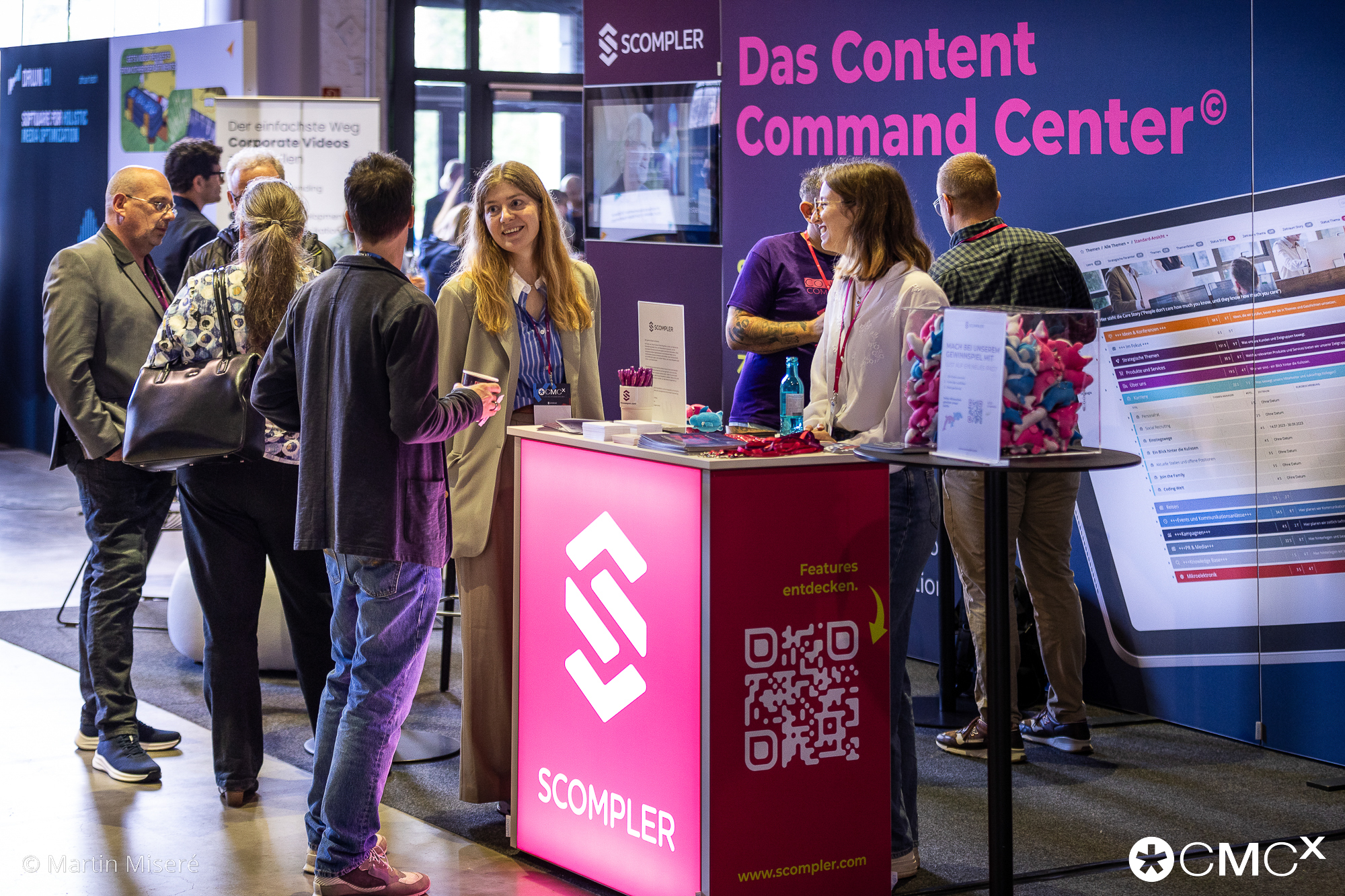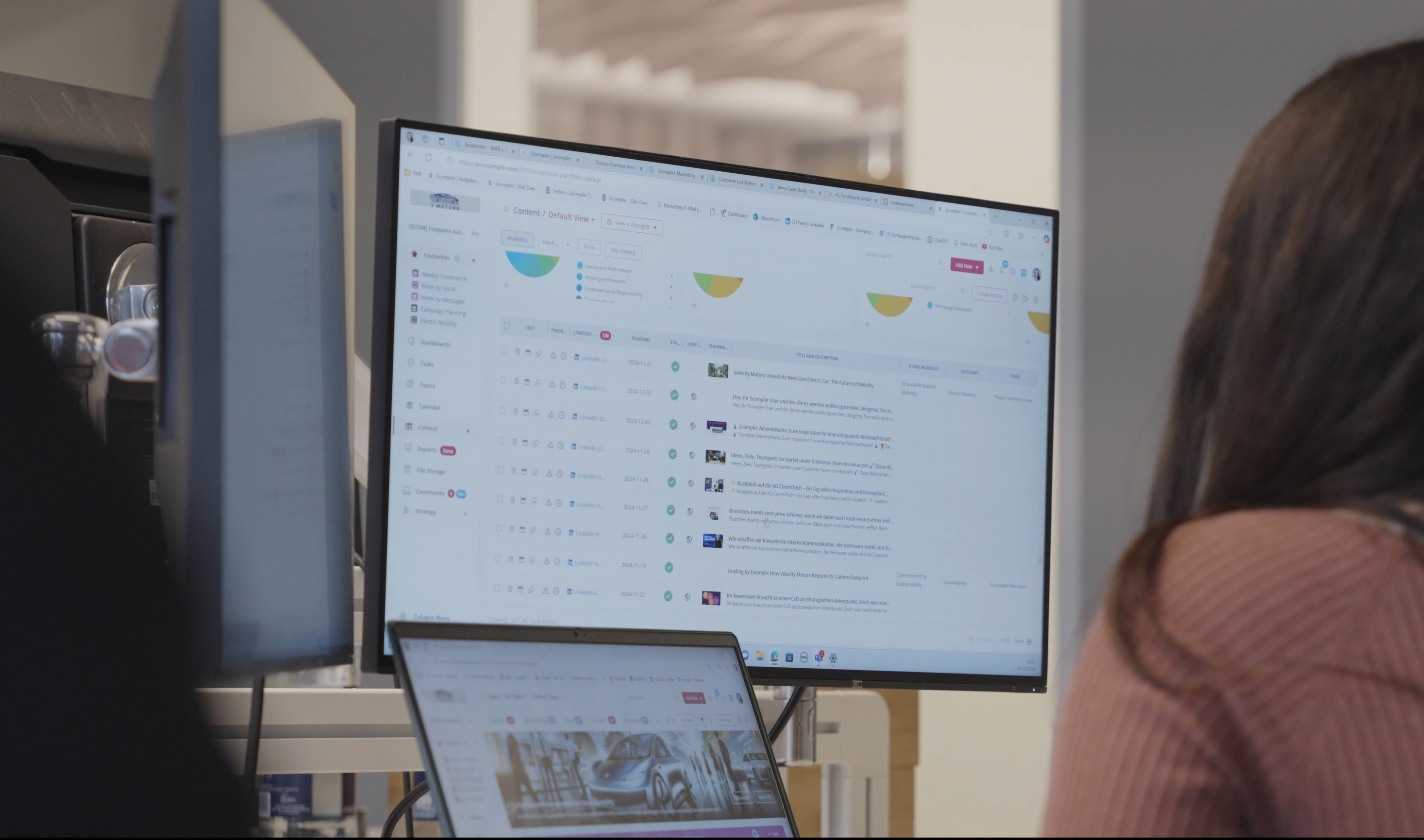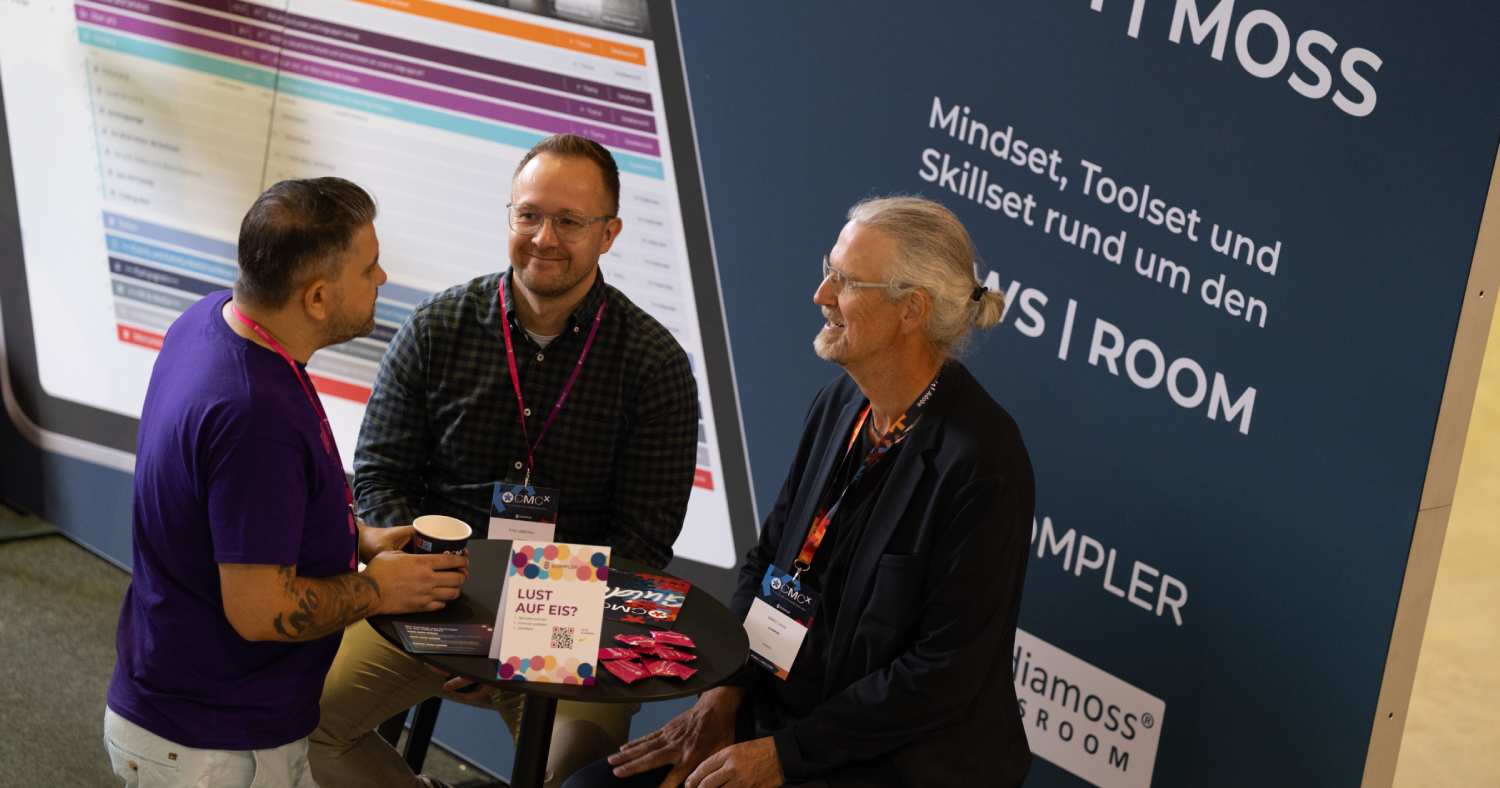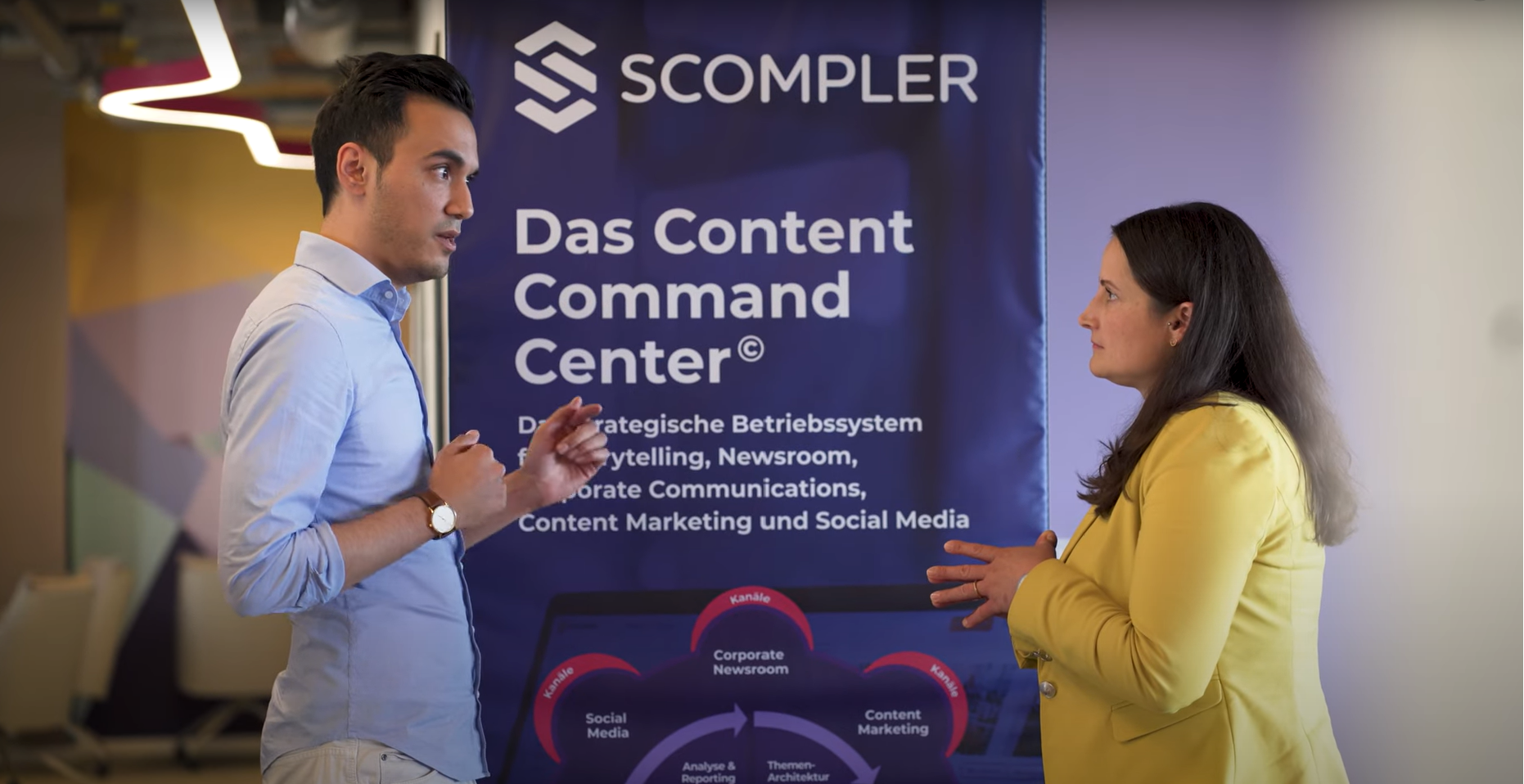SCOM Strategy
The topic of the "corporate newsroom" is still on the agenda of many companies and is even gaining momentum.
Michael Schmitz, Head of Strategy Consulting & Partner Development
Michael Schmitz has been a member of the Scompler team since November 1, 2019. We asked him about the reasons for his move, the focus of his work and his assessment of trends in the market for content strategy, brand management and the importance of a functioning ecosystem for providers of content operations platforms.
Honestly and personally: I used to start my working day in the car and commute an hour or more from beautiful Upper Bavaria to Munich and then do the same back in the evening. Of course, we work virtually at Scompler and are intensively involved with the topic of New Work. This shapes our collaboration with customers, internal projects and the coordination of the teams in Frankfurt and Munich. We are very free to decide where and how we work. I consider it a gift to be able to make full use of these two hours. It also allows me to experience and organize my business and private life differently.
That's why I feel very comfortable. But of course there are also content-related reasons for this: For one thing, I am currently working on one of the most exciting interfaces in content marketing that I can imagine: Strategy and technology. Secondly, I'm absolutely delighted that more and more companies are consciously opting for a strategic, topic-centric approach and how multi-layered they are using tools such as Scompler to organize their content planning, production and distribution. As a content strategist, it's super exciting for me to see how the strategy is starting to come to life and suddenly impacting content production on a day-to-day basis. How the teams are given support for their job, namely to create good content.
And last but not least, at Scompler I meet a lot of like-minded people and a cool development team. The speed at which marketing technology is currently evolving is breathtaking for me, and when I look at our roadmap and the 2020 update that we are presenting at this year's CMCX, I'm even more excited!
Let me pick out two trends that have a particular impact on us as a platform provider.
One example is the increasing maturity of marketing tech stacks. There are now such well-developed specialist solutions for practically every requirement in communication and marketing that companies are not opting for a one-size-fits-all marketing suite, but are putting together their tech stack according to the "best of breed" approach. In the future, market success will be determined above all by how "open" a system architecture is, i.e. which interfaces and APIs exist to other systems. Companies already have a very diversified IT landscape, so it is important to be "connectable".
The topic of the corporate newsroom is still on the agenda of many companies and is even gaining momentum. It is no longer a question of whether, but only of how. After a lot of initial effort has gone into defining organizational and team structures, roles and processes, companies are still struggling with the practical challenges that the change from channel-centric to topic-centric entails. There is not always the will to cooperate and collaborate, the willingness to consciously share knowledge and to say goodbye to the previously prevailing channel thinking.
Transparency across all planning, production and distribution activities is the "game changer" here; it brings added value and creates acceptance for the process in the long term. This also brings the technology component more into focus as an important factor for successful newsroom implementation.

The topic of the corporate newsroom is still on the agenda of many companies and is even gaining momentum. It is no longer a question of "if" but only of "how".
Michael Schmitz, Head of Strategy Consulting & Partner Development
You are right. The combination may seem a little wild at first glance. But it makes a lot of sense in relation to Scompler .
First of all, you need to understand how the company Scompler came about. As a tool designed to solve a specific problem in content strategy development and its operationalization in day-to-day operations. In other words, Scompler was developed by communication experts for strategic and operational marketing management in companies. Our DNA is virtually topic-centered planning and the deep strategy integration is the key difference to other platforms that have evolved from digital channel management.
The core of Scompler is the SCOM framework. It stands for strategic content marketing and we have continuously refined this methodology in hundreds of strategy projects. My task in the next step - and together with Mirko - is to develop a methodological toolkit from this framework, which we use ourselves to advise our customers and which is reflected in many places in the Scompler platform.
This is where the other part of my function comes into play. Which - I think - is undisputed: By now, content strategy has become professionalized to the extent that it is no longer a matter of coming up with new models and methods; there are established frameworks for that. Agencies, consulting firms, but also the companies themselves can instead concentrate on the actual strategy development and operationalization; SCOM is precisely such a set of methods that has been tried and tested in practice.
Our partner program is currently being developed and we will make our SCOM methodology toolkit available to our partners as a key component, enabling them to use an established standard methodology when advising their customers. So if you become a Scompler partner, you not only get the platform but also the methodology.








Write a comment
Your e-mail address will not be published. Required fields are marked with *.